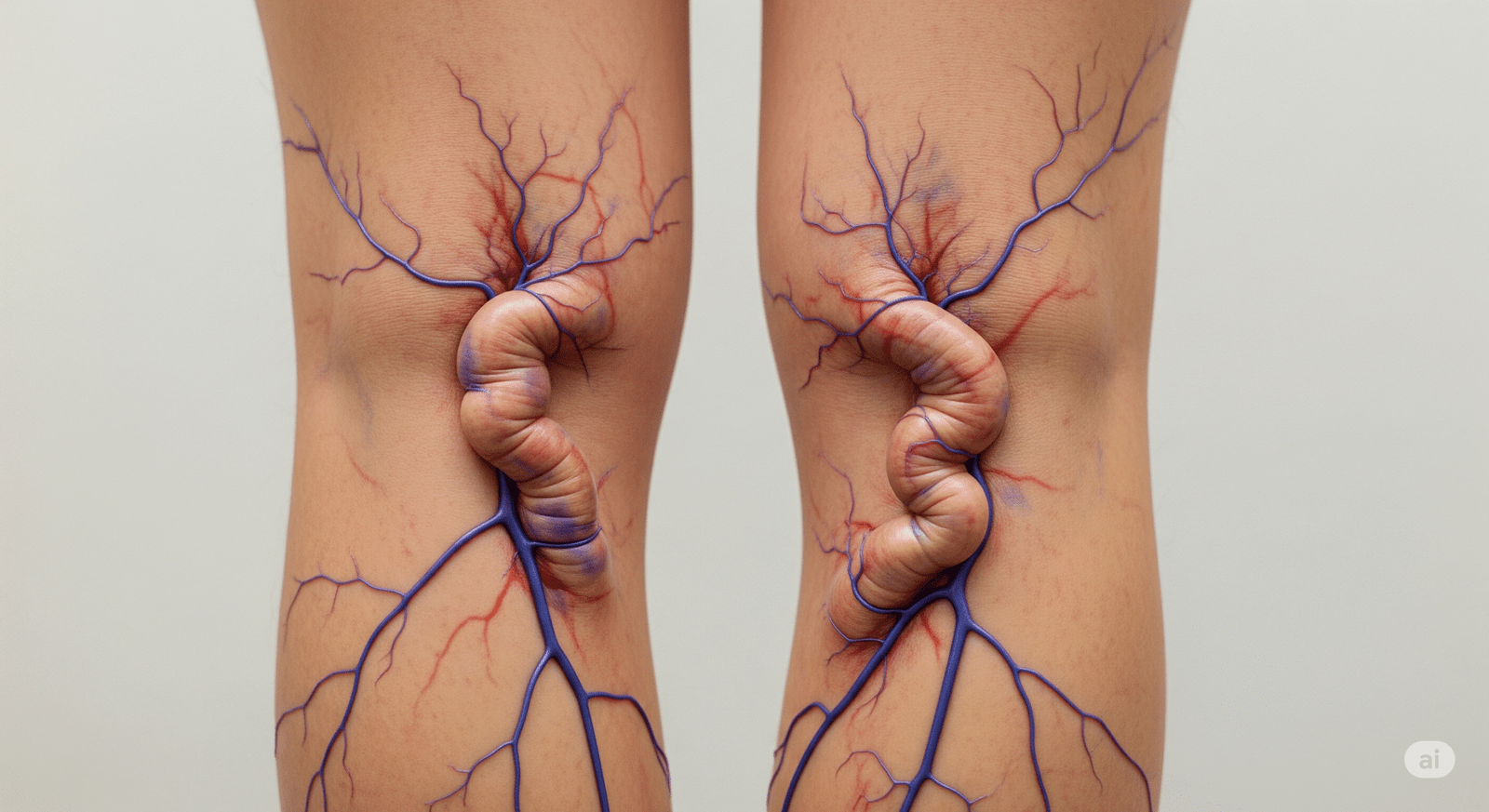Varicose Veins: Causes, Symptoms, and Treatment Method
 Introduction
Introduction
Psoriasis is a chronic autoimmune skin condition that speeds up the growth cycle of skin cells, causing patches of thick, red skin with silvery scales. It affects people of all ages and can significantly impact one’s quality of life.
What is Psoriasis?
Psoriasis occurs when the immune system mistakenly triggers the overproduction of skin cells. Unlike normal cell turnover, which takes weeks, this rapid process causes skin cells to accumulate on the surface, forming raised, scaly plaques. These patches may appear anywhere but are commonly found on the scalp, elbows, knees, and lower back.
Common Causes of Psoriasis
Several factors contribute to the development and flare-up of psoriasis:
-
Genetics: A family history of psoriasis increases the likelihood of developing the condition.
-
Immune System Issues: Psoriasis is caused by the immune system attacking healthy skin cells, triggering inflammation and rapid cell turnover.
-
Environmental Triggers: Infections, skin injuries, stress, and certain medications like beta-blockers or lithium may initiate or worsen flare-ups.
Symptoms of Psoriasis
The symptoms of psoriasis can vary depending on the type and severity, but common signs include:
-
Red, inflamed skin covered with silvery-white scales
-
Itching, burning, or soreness in affected areas
-
Cracked or dry skin that may bleed
-
Thickened, pitted, or ridged fingernails and toenails
-
Pain or stiffness in the joints (in psoriatic arthritis cases)
Psoriasis can occur in cycles, flaring for a few weeks or months and then subsiding.
Treatment Options
While there is no permanent cure for psoriasis, many treatments can help manage the condition and reduce symptoms:
-
Topical Treatments: These include corticosteroid creams, vitamin D analogs, coal tar preparations, and moisturizers to soothe inflammation and scaling.
-
Light Therapy (Phototherapy): Controlled exposure to natural or artificial ultraviolet light can slow the growth of affected skin cells.
-
Systemic Medications: In moderate to severe cases, oral or injectable medications like methotrexate, cyclosporine, or biologics (e.g., TNF inhibitors) target immune system activity to manage symptoms.
-
Lifestyle Adjustments: Maintaining healthy skin, reducing stress, avoiding triggers, and managing coexisting conditions such as obesity or diabetes can support long-term control.
Conclusion
Though psoriasis is a lifelong condition, it can be effectively managed with proper diagnosis, consistent treatment, and lifestyle changes. Collaborating with a dermatologist or healthcare provider is essential to creating a personalized treatment plan. Early intervention and education are key to maintaining healthy skin and minimizing the impact of psoriasis on daily life.
